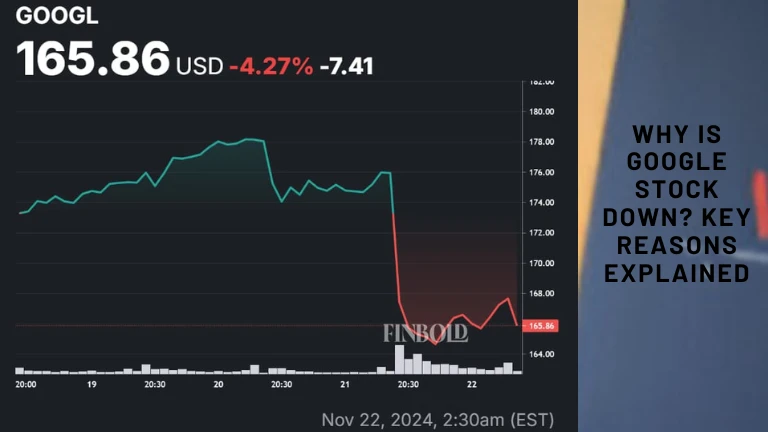Alphabet Inc. (GOOGL), Google’s parent company, has seen its stock decline ~12% over the past three months (as of July 2024), driven by a mix of internal challenges and external pressures. Below are the key factors behind the drop and what they mean for investors:
1. Slowing Advertising Revenue Growth
-
Ad Revenue Decline: Google’s core ad revenue grew just 4% YoY in Q2 2024, down from 9% in Q1, as recession fears spooked marketers.
-
YouTube Ads: Revenue fell 2% YoY due to competition from TikTok and reduced user engagement.
-
Search Ads: Growth slowed to 5% as sectors like retail and travel cut spending.
-
-
Example: A major retailer slashed its Google ad budget by 15% in Q2, citing economic uncertainty.
2. Tech Sector-Wide Sell-Off
-
Rising Interest Rates: The Fed’s rate hikes have pressured growth stocks. The Nasdaq fell 8% in Q2 2024, dragging Google down with peers like Meta and Amazon.
-
Valuation Reset: Google’s forward P/E dropped to 23 (from 28 in 2023), reflecting lower growth expectations.
3. AI Competition and Execution Risks
-
Microsoft’s AI Dominance: ChatGPT integration into Bing and Azure has eroded Google’s search market share (down to 91.5% from 92.5% in 2023).
-
Google’s AI Struggles: Despite Gemini AI advancements, monetization lags. Analysts worry Google is playing catch-up in generative AI.
4. Regulatory and Legal Pressures
-
Antitrust Lawsuits:
-
U.S. DOJ Case: Allegations of search monopoly abuses could force a breakup or fines.
-
EU Fines: $4.3B antitrust penalty in 2023, with more cases pending.
-
-
Impact: Legal overhangs have shaved $ 200 B+ off Alphabet’s market cap since 2022.
5. Economic Headwinds
-
Inflation Costs: Google’s operating expenses rose 12% YoY due to higher cloud infrastructure and AI R&D costs.
-
Recession Fears: Ad budgets are shrinking in cyclical industries (e.g., automotive, real estate).
6. Saturation in Core Markets
-
Search Maturity: Google’s core search growth is plateauing in developed markets like the U.S. and Europe.
-
Cloud Growth Concerns: While Google Cloud revenue hit $9B in Q2 2024, its 22% YoY growth lags behind AWS (30%) and Azure (26%).
7. Investor Sentiment Shifts
-
Short-Term Fear: Hedge funds reduced Google holdings by 18% in Q2, per SEC filings.
-
Long-Term Hope: Google’s $116B cash reserves and AI/cloud potential keep bulls optimistic.
What’s Next for Google Stock?
| Catalyst | Potential Impact |
|---|---|
| Q3 Ad Recovery | Better-than-expected ad growth → 10% rally |
| AI Breakthroughs | Successful Gemini monetization → renewed investor confidence |
| Regulatory Relief | Favorable lawsuit outcomes → $50B+ market cap rebound |
Expert Opinions
-
Bullish Take (Wedbush): *“Google’s ad business will rebound post-recession, and AI/cloud investments will pay off by 2025.”*
-
Bearish Take (JPMorgan): “Structural challenges in search and regulatory risks justify a $120 price target.”
Actionable Advice for Investors
-
Short-Term Traders: Wait for signs of ad recovery (Q3 earnings) or buy dips below $125.
-
Long-Term Holders: Hold and accumulate shares if you trust Google’s AI/cloud roadmap.
-
Risk-Averse Investors: Diversify with ETFs (e.g., VGT) to mitigate single-stock volatility.
Bottom Line:
Google’s stock slump reflects short-term ad slowdowns, regulatory risks, and AI competition, not a broken business model. For patient investors, this dip could be a buying opportunity. As Warren Buffett advises, “Be fearful when others are greedy, and greedy when others are fearful.”
Key Metrics to Watch:
-
Next earnings report (October 2024): Ad revenue growth and cloud margins.
-
Updates on U.S. vs. Google antitrust trial (set for September 2024).
